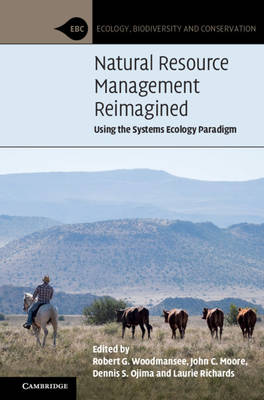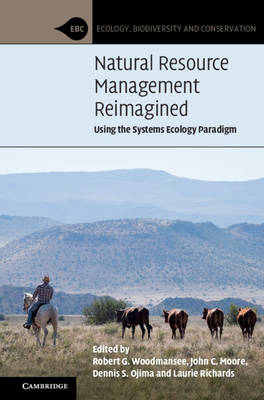
- Afhalen na 1 uur in een winkel met voorraad
- Gratis thuislevering in België vanaf € 30
- Ruim aanbod met 7 miljoen producten
- Afhalen na 1 uur in een winkel met voorraad
- Gratis thuislevering in België vanaf € 30
- Ruim aanbod met 7 miljoen producten
Zoeken
Natural Resource Management Reimagined
Using the Systems Ecology Paradigm
€ 59,45
+ 118 punten
Omschrijving
The Systems Ecology Paradigm (SEP) incorporates humans as integral parts of ecosystems and emphasizes issues that have significant societal relevance such as grazing land, forestland, and agricultural ecosystem management, biodiversity and global change impacts. Accomplishing this societally relevant research requires cutting-edge basic and applied research. This book focuses on environmental and natural resource challenges confronting local to global societies for which the SEP methodology must be utilized for resolution. Key elements of SEP are a holistic perspective of ecological/social systems, systems thinking, and the ecosystem approach applied to real world, complex environmental and natural resource problems. The SEP and ecosystem approaches force scientific emphasis to be placed on collaborations with social scientists and behavioral, learning, and marketing professionals. The SEP has given environmental scientists, decision makers, citizen stakeholders, and land and water managers a powerful set of tools to analyse, integrate knowledge, and propose adoption of solutions to important local to global problems.
Specificaties
Betrokkenen
- Uitgeverij:
Inhoud
- Aantal bladzijden:
- 460
- Taal:
- Engels
- Reeks:
Eigenschappen
- Productcode (EAN):
- 9781108740135
- Verschijningsdatum:
- 22/04/2021
- Uitvoering:
- Paperback
- Formaat:
- Trade paperback (VS)
- Afmetingen:
- 196 mm x 226 mm
- Gewicht:
- 725 g

Alleen bij Standaard Boekhandel
+ 118 punten op je klantenkaart van Standaard Boekhandel
Beoordelingen
We publiceren alleen reviews die voldoen aan de voorwaarden voor reviews. Bekijk onze voorwaarden voor reviews.










